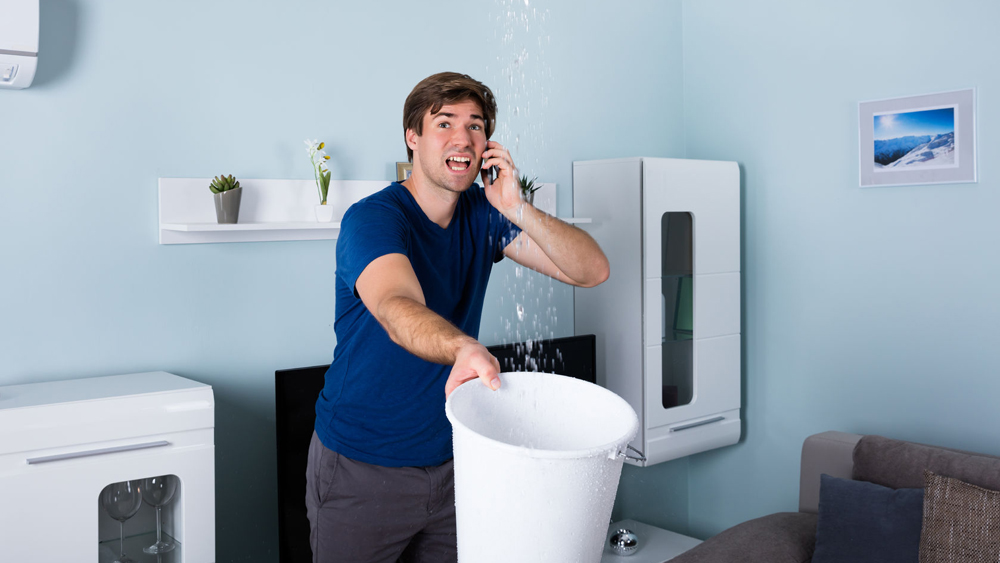Exposing the Key Triggers Behind Residential Water Leak Concerns
Exposing the Key Triggers Behind Residential Water Leak Concerns
Blog Article
They are making a number of great points on the subject of How to detect water leaks in your home as a whole in this content just below.

Leakages not just create waste of water yet can also create unneeded damage to your home and promote unwanted natural development. By recognizing and looking for everyday scenarios that create leaks, you can secure your home from future leaks and unneeded damage.
Elbowing in roots
The majority of water leaks begin outside your house instead of inside it. If you see an abrupt decrease in water pressure, state in your faucet, take time to head out and also analyze your lawn. You might see damp patches or sinkholes in your yard, which may imply that tree roots are invading water lines creating water to leak out. You can have your plumber check for breach, specifically if you have trees or hedges near your residential property.
Rusty water systems
As time passes by, your plumbing system ages and also rust such as corrosion may start eating away the pipelines. This might be the source of staining or warping on your pipes. This calls for an examination with your plumber immediately. If our plumbing system is old, take into consideration replacing the pipes considering that they go to a higher danger of rust than the more recent versions.
Defective Pipeline Joints
Pipe joints can weaken over time, resulting in water leaks. If you have loud pipes that make ticking or banging noises, especially when the hot water is transformed on, your pipe joints are most likely under a lot of stress.
Instantaneous temperature level modifications.
Severe temperature adjustments in our pipelines can create them to increase and contract all of a sudden. This development and contraction may create fractures in the pipelines, particularly if the temperature are below freezing. If you maintained an eye on exactly how your plumbing works, it would certainly be best. The existence of the previously mentioned conditions often indicates a high danger.
Poor Water Connectors
At times, a leakage can be created by loose hoses and also pipes that provide your appliances. In instance of a water connections leakage, you may observe water running straight from the supply line or puddles around your appliances.
Blocked Drains
Clogged drains might be irritating and also inconveniencing, but they can occasionally end up triggering an overflow bring about burst pipes. Maintain getting rid of any materials that may decrease your drains pipes that might clog them to avoid such hassles.
All the above are sources of leakages but not all water leaks arise from plumbing leaks; some leaks might come from roofing leakages. All leaks ought to be repaired instantly to avoid water damage.
Leakages not just create waste of water however can also create unneeded damage to your home and also advertise unwanted natural growth. By looking and also comprehending for day-to-day scenarios that trigger leaks, you can protect your house from future leakages as well as unneeded damage. Today, we will look at 6 leak creates that may be triggering your pipes to trickle.
At times, a leak can be created by loosened hose pipes and also pipes that provide your appliances. In situation of a water links leak, you might discover water running straight from the supply line or puddles around your devices.
How To Check For Water Leak In Your Home
How To Check for Leaks
The average household's leaks can account for nearly 10,000 gallons of water wasted every year and ten percent of homes have leaks that waste 90 gallons or more per day. Common types of leaks found in the home are worn toilet flappers, dripping faucets, and other leaking valves. These types of leaks are often easy to fix, requiring only a few tools and hardware that can pay for themselves in water savings. Fixing easily corrected household water leaks can save homeowners about 10 percent on their water bills.
To check for leaks in your home, you first need to determine whether you're wasting water and then identify the source of the leak. Here are some tips for finding leaks:
Take a look at your water usage during a colder month, such as January or February. If a family of four exceeds 12,000 gallons per month, there are serious leaks.
Check your water meter before and after a two-hour period when no water is being used. If the meter changes at all, you probably have a leak.
Identify toilet leaks by placing a drop of food coloring in the toilet tank. If any color shows up in the bowl after 10 minutes, you have a leak. (Be sure to flush immediately after the experiment to avoid staining the tank.)
Examine faucet gaskets and pipe fittings for any water on the outside of the pipe to check for surface leaks.
Undetected water leaks can happen without the home or business owner even realizing. If you suspect a water leak, but not able to find the source. It is time to contact a professional water leak detection service, The Leak Doctor.
How To Find a Water Leak In Your Home
https://www.leakdoctor.com/blog/How-To-Check-For-Water-Leak-In-Your-Home_AE197.html

I am very eager about Most Common Causes of Leaky Pipes and I really hope you appreciated the new blog post. You should take a moment to promote this article if you enjoyed it. Thanks so much for your time invested reading it.
Professional touch? Contact. Report this page